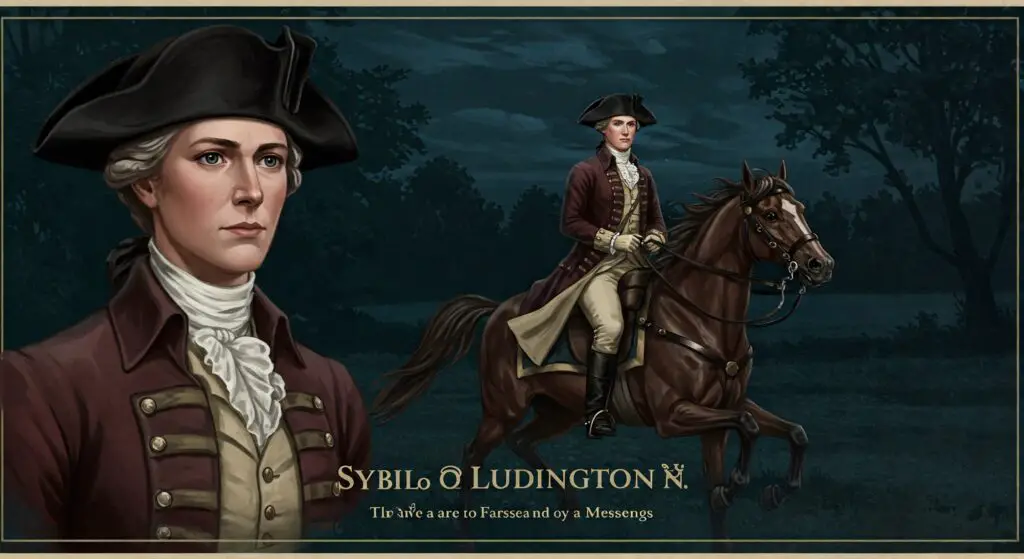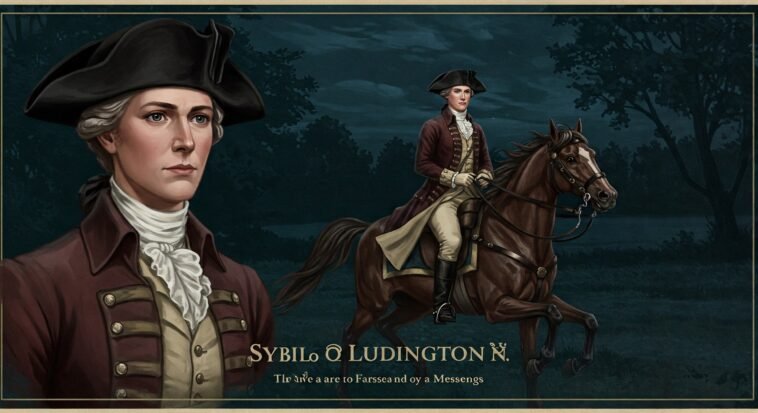
When we think of revolutions, we often picture iconic leaders—generals, politicians, and public figures—most of them men.
But history is full of women who, though hidden from the spotlight, played pivotal roles in shaping the course of events.
They orchestrated rebellions, rallied movements, and shifted the balance of power—all while working behind the scenes.
This article uncovers the untold stories of these revolutionary women.
Their courage, intelligence, and determination remind us that not every hero wears a uniform—or gets the credit they truly deserve.
It’s like the Hidden Figures of history, where the women doing the real work aren’t always the ones in the headlines, but their impact is undeniable.
Why Were Women’s Roles Hidden?
Cultural norms
For centuries, society pegged leadership as a “man’s job.”
Women were often cast in supporting roles or excluded from positions of power.
Think of it like Game of Thrones—where women might be rulers or strategists, but their authority often gets overshadowed by their male counterparts.
Deliberate erasure
History is often written by the victors, and in many cases, those who won the wars or revolutions made sure to downplay or erase women’s contributions.
It’s like the Marvel Cinematic Universe, where a lot of heroes might get their solo films, but the unsung women often don’t get the same credit in the official narrative.
- Read also: From Artists to Rulers: 8 Famous Renaissance Women
- Read also: Legendary Women: 5 Famous Women of the Middle Ages
Strategic secrecy
To avoid persecution or to strengthen their movements, many women had to work in the shadows.
They operated like secret agents—organizing rebellions and shaping events from behind the scenes, much like the women in Killing Eve, who do the hard work but rarely get the spotlight.

5 Women Who Led Revolutions
1. Sybil Ludington
You’ve probably heard of Paul Revere’s midnight ride, but have you heard about Sybil Ludington?
In 1777, during the American Revolution, 16-year-old Sybil didn’t just take a ride—she went big.
She covered 40 miles in one night, rallying patriot forces to defend New York from the British.
- Distance covered: 40 miles in a single night—twice the distance of Revere’s famous ride.
- Impact: She mobilized hundreds of troops, playing a key role in defending vital areas. Without her ride, the Patriots might not have had the reinforcements they needed.
Why it matters
The National Women’s History Museum (2023) calls it “one of the most critical yet unsung acts of courage during the American Revolution.”
Think of her as the real hero of the night, in a story that’s often overshadowed by the bigger names.
2. Tadeusz Kościuszko’s Secret Ally
During Poland’s Kościuszko Uprising in 1794, it wasn’t just generals and soldiers on the front lines.
Anna Maria Kross was secretly working behind the scenes to supply the Polish resistance with everything they needed to fight back.
- Tactics: Espionage, coded messages, and covert funding—she knew how to keep a secret and keep the resistance moving forward.
- Legacy: While Tadeusz Kościuszko earned the spotlight, Kross’s contributions were largely ignored by history—until recent archival discoveries brought her crucial role to light.
Lessons from Kross
- Operational secrecy: Being able to work without attracting attention was key to her success.
- Women’s networks: Women-led networks were often underestimated, making them more effective because they weren’t as closely watched.
3. Lakshmi Bai
While Lakshmi Bai, the Rani of Jhansi, is remembered as a fierce symbol of resistance against British colonial rule, few know how secretly she orchestrated her uprising.
- Hidden operations: Lakshmi Bai held clandestine meetings, communicated using coded messages, and formed strategic alliances across Indian states.
- Major revolution: She played a pivotal role in one of the first organized revolts during India’s 1857 Rebellion, leading her forces with unmatched courage.
Why it matters
As historian Rudrangshu Mukherjee points out, “Lakshmi Bai’s genius lay not just in battlefield bravery but in her behind-the-scenes diplomacy and political strategy” (The Telegraph India, 2021).
Like a mastermind strategist, she was not just fighting battles—she was shaping the revolution from the ground up, behind closed doors.
Claudia Jones
While figures like Martin Luther King Jr. and Malcolm X became global icons, Claudia Jones—born in Trinidad—was quietly building Britain’s civil rights movement from the shadows.
- Foundations built: Jones founded the first major Black newspaper in Britain and spearheaded workers’ rights campaigns.
- Cultural legacy: She also founded the Notting Hill Carnival, which is now one of the largest street festivals in the world, a true cultural phenomenon.
Why it matters
Jones understood that cultural revolution was just as vital as political change, setting the stage for future movements.
Her work laid the groundwork for what would become a seismic shift in Britain’s civil rights movement.
5. Mina Loy
In the early 20th century, while names like Ezra Pound and T.S. Eliot dominated literary revolutions, Mina Loy was quietly challenging the status quo with radical poetry and feminist manifestos.
- Major works: Her 1914 Feminist Manifesto was a bold and unflinching call to dismantle patriarchal systems.
- Revolutionary influence: Though rarely credited, Loy’s work deeply influenced the modernist movement’s more progressive strands.
Why it matters
As scholar Carolyn Burke notes, “Without Loy’s experimental provocations, modernism’s boundaries would have remained rigidly male-dominated” (Burke, 1996).
She disrupted the literary world, laying the foundation for the feminist movements that would follow.

How Women’s Secret Revolutions Changed the World
Even though these women worked behind the scenes, their actions shaped the world in ways we’re still feeling today:
Empowered future movements
Many of today’s civil rights, feminist, and anti-colonial movements trace their roots back to these early revolutionaries.
It’s like the Spider-Man of activism—where each hero’s actions, though seemingly small at the time, build the foundation for the next wave of change.
Without the quiet groundwork these women laid, today’s movements wouldn’t be where they are.
Redefined leadership
These women proved that leadership doesn’t have to be loud or visible to be powerful.
They were the original quiet storm—transforming the world without the constant applause.
Think of it like The Mandalorian—the leader doesn’t always have to be the loudest in the room to command respect and influence.
Challenged historical narratives
Their hidden histories challenge us to rethink who we elevate and why.
It’s like revisiting The Matrix and realizing that the people pulling the strings weren’t the obvious figures at the top—they were the ones operating in the shadows, shaping the narrative from behind the curtain.
Why These Stories Matter Today
In a world where visibility often equals power, it’s important to remember that many revolutions were shaped by invisible hands.
Recognizing women’s contributions today:
Restores historical truth
We can’t fully understand history without acknowledging the women who quietly made it.
It’s like rewatching Star Wars and realizing it wasn’t just Luke Skywalker who saved the galaxy—it was Leia, hidden in plain sight, leading the charge from behind the scenes.
Inspires new generations
These hidden stories serve as blueprints for future leaders, especially young women.
Imagine The Hunger Games without Katniss: her story was built on rebellion, courage, and the power of the underdog.
Knowing these women existed gives today’s trailblazers the confidence to make their own impact.
Challenges persistent gender biases
By highlighting women’s histories, we break down the outdated idea that power and leadership are inherently male.
It’s like watching Wonder Woman and realizing that strength comes in many forms—sometimes, it’s silent, strategic, and completely transformative.
The UNESCO report HerStory: Women’s Forgotten Contributions to Global Change (2020) emphasizes that “uncovering women’s hidden histories is essential to achieving gender equality.”
We’re still rewriting history—one woman at a time.

How We Can Honor These Hidden Leaders
Want to keep their legacy alive? Here’s how:
Support diverse historiography
Push for curriculums that spotlight women’s stories.
It’s like demanding a Black Panther sequel that explores more untold stories from Wakanda.
History should be just as diverse as the world we live in.
Celebrate local heroines
Look closer at the women in your community who made a difference.
They might not have been written about in history books, but their impact is felt every day—just like the unsung heroes of The Crown, whose contributions shaped history behind the scenes.
Amplify women’s voices
Use your platforms to shout out the work of contemporary female change-makers.
Social media is the new Justice League—use it to highlight the power of today’s women warriors.
Create art and media
Stories have the power to inspire. Turn these hidden histories into books, movies, or even TikToks.
Imagine a Hidden Figures for every untold woman’s story—spreading their legacies through the arts helps us keep their contributions alive for generations to come.
- Read also: Breaking Barriers: 9 Women Philosophers in the Enlightenment Era
- Read also: Women in History: 8 Most Influential Women in the Age of Empire
Conclusion: The Power of Hidden Revolutionaries
The women who secretly led revolutions weren’t after fame—they were after justice, freedom, and real change.
Their courage shows us that true leadership isn’t about the spotlight; it’s about the lasting impact you make.
Think of them like the shadow heroes in your favorite origin story—quietly shaping the world from behind the scenes.
As we continue to fight for a more equitable future, their hidden revolutions act as our guiding lights.
It’s time to bring their stories out of the shadows and into the full, blazing brightness of history.



